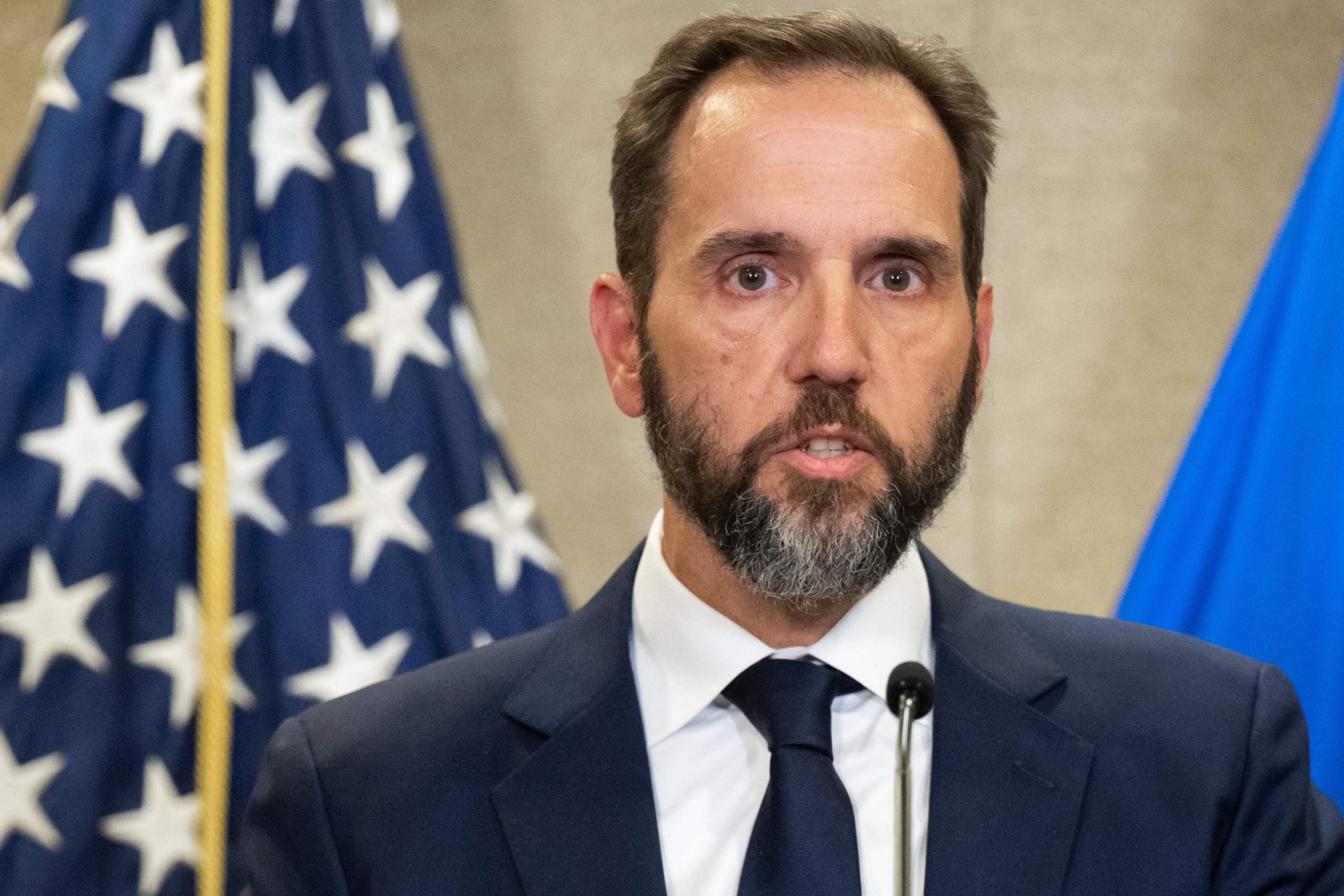Trump makes another push for presidential immunity in 2020 election subversion case
Filing is the latest move in Trump’s attempt to throw out the government’s federal election interference case
Your support helps us to tell the story
From reproductive rights to climate change to Big Tech, The Independent is on the ground when the story is developing. Whether it's investigating the financials of Elon Musk's pro-Trump PAC or producing our latest documentary, 'The A Word', which shines a light on the American women fighting for reproductive rights, we know how important it is to parse out the facts from the messaging.
At such a critical moment in US history, we need reporters on the ground. Your donation allows us to keep sending journalists to speak to both sides of the story.
The Independent is trusted by Americans across the entire political spectrum. And unlike many other quality news outlets, we choose not to lock Americans out of our reporting and analysis with paywalls. We believe quality journalism should be available to everyone, paid for by those who can afford it.
Your support makes all the difference.Donald Trump’s lawyers filed a request to a federal appeals court late on Saturday night, asking to throw out the 2020 election interference case against the former president – citing his presidential immunity.
The 55-page filing was submitted just two days after the Supreme Court refused to rule on Mr Trump’s presidential immunity appeal in the case.
Mr Trump’s lawyers reiterated much of their previous argument in the filing to the DC circuit for the Court of Appeals, saying that the former president’s decisions were made under his official acts, which are protected according to the Constitution.
The filing also leaned on the fact that Mr Trump was acquitted by the Senate for “the same and closely related conduct” and hinted that the indictment could have a chilling effect on future presidents.
It is the latest in a back-and-forth between Special Counsel Jack Smith and Mr Trump’s legal team in the fight to keep the indictment moving forward. Mr Smith has asked the court of appeals to expedite the process of hearing the immunity appeal.
Mr Smith attempted to circumvent the typical appeals process by fast-tracking Mr Trump’s presidential immunity appeal to the Supreme Court earlier this month.
Mr Trump’s legal team has made a concerted effort to delay the case, which is slated to go to trial in March 2024. After Judge Tanya Chutkan denied the former president’s request to have the case dismissed on presidential immunity grounds, his team got to work appealing the decision.

In that order, Judge Chutkan said there was nothing in the Constitution or America’s founding documents that supported the argument that a president is not subject to federal criminal law.
Mr Trump’s team disagrees. In their recent filing, the lawyers wrote extensively criticising Judge Chutkan’s order saying she incorrectly interpreted statutes and “simply failed to address many of President Trump’s principal arguments.”
In their argument, lawyers for Mr Trump said that a separation of powers between the executive and judicial branches does not allow for the judicial branch to judge the president’s official acts.
They’ve argued that the allegations against Mr Trump are all decisions he made as an official act – albeit the “outer perimeter” of his duties.
However, Mr Smith has previously said that Mr Trump’s alleged actions – knowingly making false claims about election results to pressure state election officials and others to attempt to overturn results – are a crime.
A grand jury handed down an indictment against Mr Trump in August. Mr Trump is charged with conspiracy to defraud the United States, conspiracy to obstruct an official proceeding, obstruction and attempt to obstruct an official proceeding and conspiracy against rights.
Mr Smith has until 30 December to submit his filing in the case. After that, a three-panel judge will hear oral arguments in the case on 9 January.
It is expected that a decision in the presidential immunity case will most likely end up back in the hands of the Supreme Court for a final decision.

Join our commenting forum
Join thought-provoking conversations, follow other Independent readers and see their replies
Comments